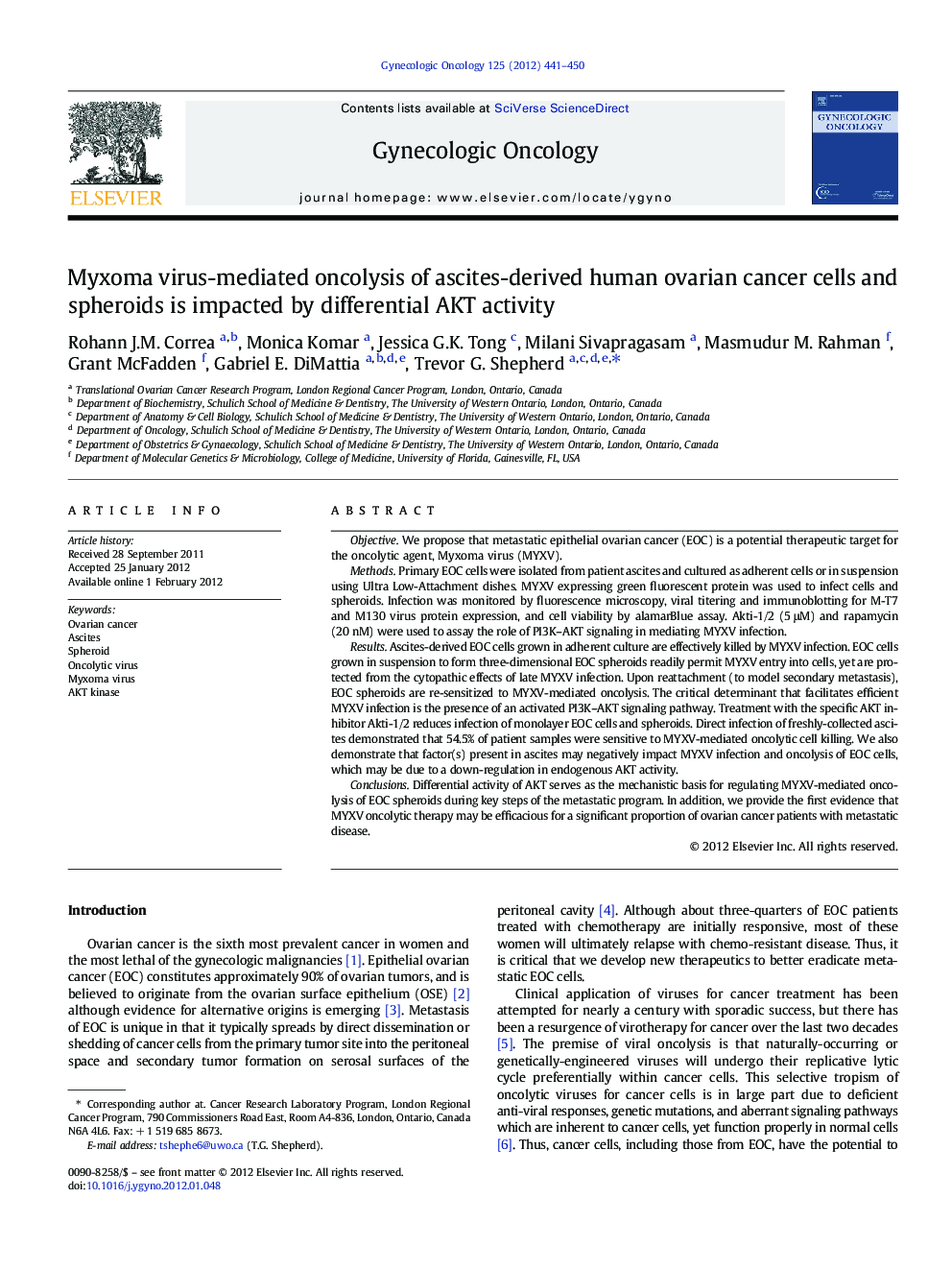| Article ID | Journal | Published Year | Pages | File Type |
|---|---|---|---|---|
| 3945157 | Gynecologic Oncology | 2012 | 10 Pages |
ObjectiveWe propose that metastatic epithelial ovarian cancer (EOC) is a potential therapeutic target for the oncolytic agent, Myxoma virus (MYXV).MethodsPrimary EOC cells were isolated from patient ascites and cultured as adherent cells or in suspension using Ultra Low-Attachment dishes. MYXV expressing green fluorescent protein was used to infect cells and spheroids. Infection was monitored by fluorescence microscopy, viral titering and immunoblotting for M-T7 and M130 virus protein expression, and cell viability by alamarBlue assay. Akti-1/2 (5 μM) and rapamycin (20 nM) were used to assay the role of PI3K–AKT signaling in mediating MYXV infection.ResultsAscites-derived EOC cells grown in adherent culture are effectively killed by MYXV infection. EOC cells grown in suspension to form three-dimensional EOC spheroids readily permit MYXV entry into cells, yet are protected from the cytopathic effects of late MYXV infection. Upon reattachment (to model secondary metastasis), EOC spheroids are re-sensitized to MYXV-mediated oncolysis. The critical determinant that facilitates efficient MYXV infection is the presence of an activated PI3K–AKT signaling pathway. Treatment with the specific AKT inhibitor Akti-1/2 reduces infection of monolayer EOC cells and spheroids. Direct infection of freshly-collected ascites demonstrated that 54.5% of patient samples were sensitive to MYXV-mediated oncolytic cell killing. We also demonstrate that factor(s) present in ascites may negatively impact MYXV infection and oncolysis of EOC cells, which may be due to a down-regulation in endogenous AKT activity.ConclusionsDifferential activity of AKT serves as the mechanistic basis for regulating MYXV-mediated oncolysis of EOC spheroids during key steps of the metastatic program. In addition, we provide the first evidence that MYXV oncolytic therapy may be efficacious for a significant proportion of ovarian cancer patients with metastatic disease.
Graphical abstractFigure optionsDownload full-size imageDownload as PowerPoint slideHighlights► Myxoma virus infects and kills primary epithelial ovarian cancer cells isolated and cultured from patient ascites. ► Oncolytic cell death is attenuated in infected ovarian cancer spheroids while in suspension, yet oncolysis is activated upon spheroid attachment. ► Factors in malignant ascites may impact Myxoma virus-mediated oncolytic cell death of metastatic ovarian cancer cells.
